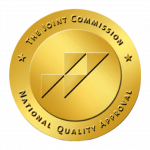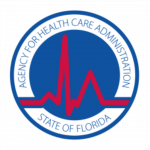Are substance use disorders and mental illness connected? The easiest answer is, Yes. Substance use disorder and mental illness are interconnected, either directly or indirectly. A substance use disorder is substance abuse that results in dependence or addiction. People with substance abuse issues are often found to also have mental illness as well as substance use disorder (SUD), or vice versa.
To sum it up, addiction is a mental illness. However, this doesn’t mean that everyone living with a mental illness is abusing substances. Below are the five different connections between mental illness and substance use disorder.
#1. Untreated Mental Health Disorders Increase Risk of SUD
According to the National Institute of Mental Health, nearly one in five U.S. adults live with a mental illness. Sadly, half of these cases go untreated. When people suffering from mental health allow it to go untreated, this is when bad behaviors, like substance abuse, begin. Instead of getting help and treatment some turn to substance use to help numb the side effects of their mental illness.
However, substance use only provides temporary relief which causes more harm in the long run. Symptoms worsen, drug tolerance is built, and quality of life sadly decreases exponentially. Thus, worsening mental health while now creating a substance use disorder.
#2. SUD Can Cause Mental Health Problems (Depression, Anxiety, etc.)
Not everyone who is abusing drugs and living with substance abuse disorder will develop mental health problems. However, alcohol and drug abuse can increase underlying mental health issues creating bigger problems.
There are a handful of substances that are considered downers. Downers lowers neurotransmission levels, thus reducing arousal or stimulation in various parts of the brain. Some of these substances include alcohol, benzodiazepines, and heroin. When abusing drugs that are seen as depressants can cause mental health problems like:
- Depression
- Anxiety
- Dementia
- Psychosis
In some cases, stopping substance abuse all together can be enough to eliminate these mental health symptoms. However, substance abuse can also change brain chemistry long-term, which can take time to reverse, if at all.
#3. SUD and Mental Health Issues Share Common Symptoms
Central nervous system depressants, like alcohol and benzodiazepines, trigger depression, lethargy, and hopelessness. On the other hand, stimulants like cocaine can cause psychosis, delusions, and hallucinations. Chronic use of these drugs can change the chemistry of the brain, causing irreversible changes.
These symptoms are also symptoms of mental health issues like Bipolar Disorder and schizophrenia. More symptoms that SUD and mental health illnesses share are:
- Paranoia
- Anxiety
- Unexplained change in personality
- Lack of Motivation
- Frequent mood swings
- Increased agitation and anger
- Excessive energy/ restlessness
#4. Many Struggling with Mental Health Are Also Struggling with SUD
The NIMH has shown that about half of the number of individuals who experience SUD will also experience a co-occurring mental health disorder. This is also the case for individuals living with a mental health illness, half of them will also struggle with substance abuse. In 2018 alone, studies show that over nine million adults were struggling with both SUD and a co-occurring mental health disorder.
When suffering from a mental illness as well as SUD it is known as a dual diagnosis. It is important to diagnose both disorders for effective treatment options. Effective treatment does not only focus on one disorder rather than the other, they both must be addressed.
#5. Mental Disorders and SUD are Treatable
Although there is no cure for mental disorders or SUD, there is light at the end of the tunnel. Both are treatable. Whether someone is struggling with a mental illness, SUD, or a dual diagnosis there are effective treatment options. At the Harm Reduction Center in Palm Beach, Florida, we offer integrated Medication-Assisted Treatment and all outpatient levels of care.
There are psychotherapy options and counseling to help with long-term symptom management. We are a private healthcare facility that offers highly individualized treatment options that are tailored to your specific needs.
Our goal at HARC is to empower you and support you every step of the way. Take your life back, contact us today.














